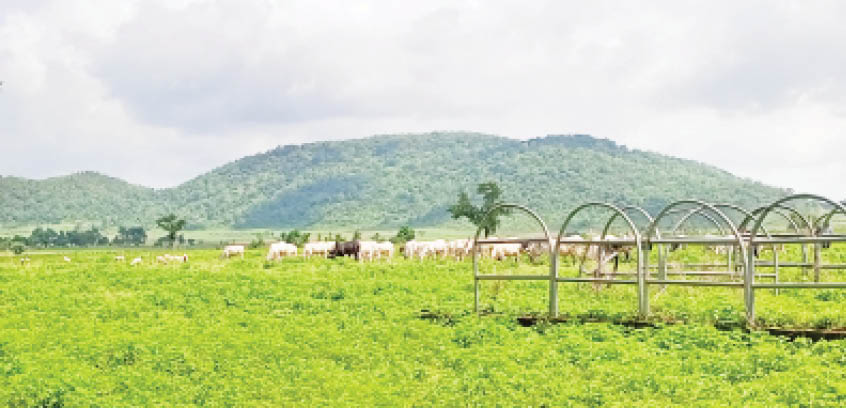Future of Over 2.5m original Abuja inhabitants remains bleak – Zikirullahi
The Resource Centre for Human Rights and Civic Education (CHRICED) has said the future of over 2.5 million indigenous people, known as Abuja Original Inhabitants (OIs) of Nigeria’s Federal Capital Territory (FCT), remains bleak, without rectifying the injustice done to them in the country. Executive Director of CHRICED, Dr Ibrahim Zikirullahi, said this on Tuesday […]

Pasture development at Paiko-Kore Grazing Reserve in Gwagwalada Area Council of the FCT
The Resource Centre for Human Rights and Civic Education (CHRICED) has said the future of over 2.5 million indigenous people, known as Abuja Original Inhabitants (OIs) of Nigeria’s Federal Capital Territory (FCT), remains bleak, without rectifying the injustice done to them in the country.
Executive Director of CHRICED, Dr Ibrahim Zikirullahi, said this on Tuesday at the 17th session of the Expert Mechanism for the Rights of Indigenous Peoples (EMRIP) holding at the Palais des Nations, Geneva, Switzerland.
He said Abuja Original Inhabitants consisted of nine tribes and 17 chiefdoms, who are facing challenges of landlessness, statelessness, and the extinction of their culture.
He, however, noted some positive developments, including the appointment of an Abuja native as a Minister of the Federal Republic of Nigeria, for the first time, the appointment of a native youth as a Mandate Secretary for Area Council Secretariat, the establishment of FCT Civil Service Commission, and the creation of FCT Women Affairs Secretariat.
“While we acknowledge the progress made, it is disheartening to note that almost all the principal officers of the new governance structures created are non-natives and therefore may not represent the interests of the Abuja indigenous people.”
“Also, it is unfortunate that, to this day, most of the indigenous people whose land was taken by Military Decree 6 of 1976 for the establishment of the new capital territory have not been compensated or resettled. Instead, the demolition of their settlements has intensified, leading to increased homelessness in the name of development expansion.
“Unlike other Nigerians who have the right to vote for a governor and a state house of assembly, the indigenous people of Abuja are still denied this political right, despite being citizens of their own country.
“The Nigerian government has ignored the pleas of the Abuja natives regarding the discrimination and injustices they face, even disregarding Supreme Court rulings in their favor,” Zikirullahi said.
He also lamented that apart from injustice by their own government, the Switzerland Embassy has again added to the pains of the Abuja indigenous people by consistent refusal to grant visa appointment for them to attend the EMRIP event.
He said, “Despite receiving registration approval late in May 2024 from the EMRIP Secretariat, the Swiss Government should have shown understanding due to the significance of this UN annual event. We hold that the refusal is not only against the principles of free movement for indigenous people as guaranteed by the UN, but also hinders the opportunity for the Abuja natives to showcase their culture and artefacts on a global platform.”
